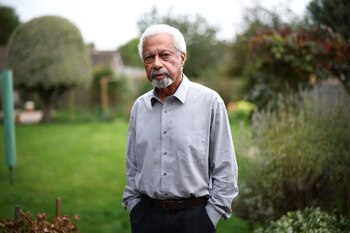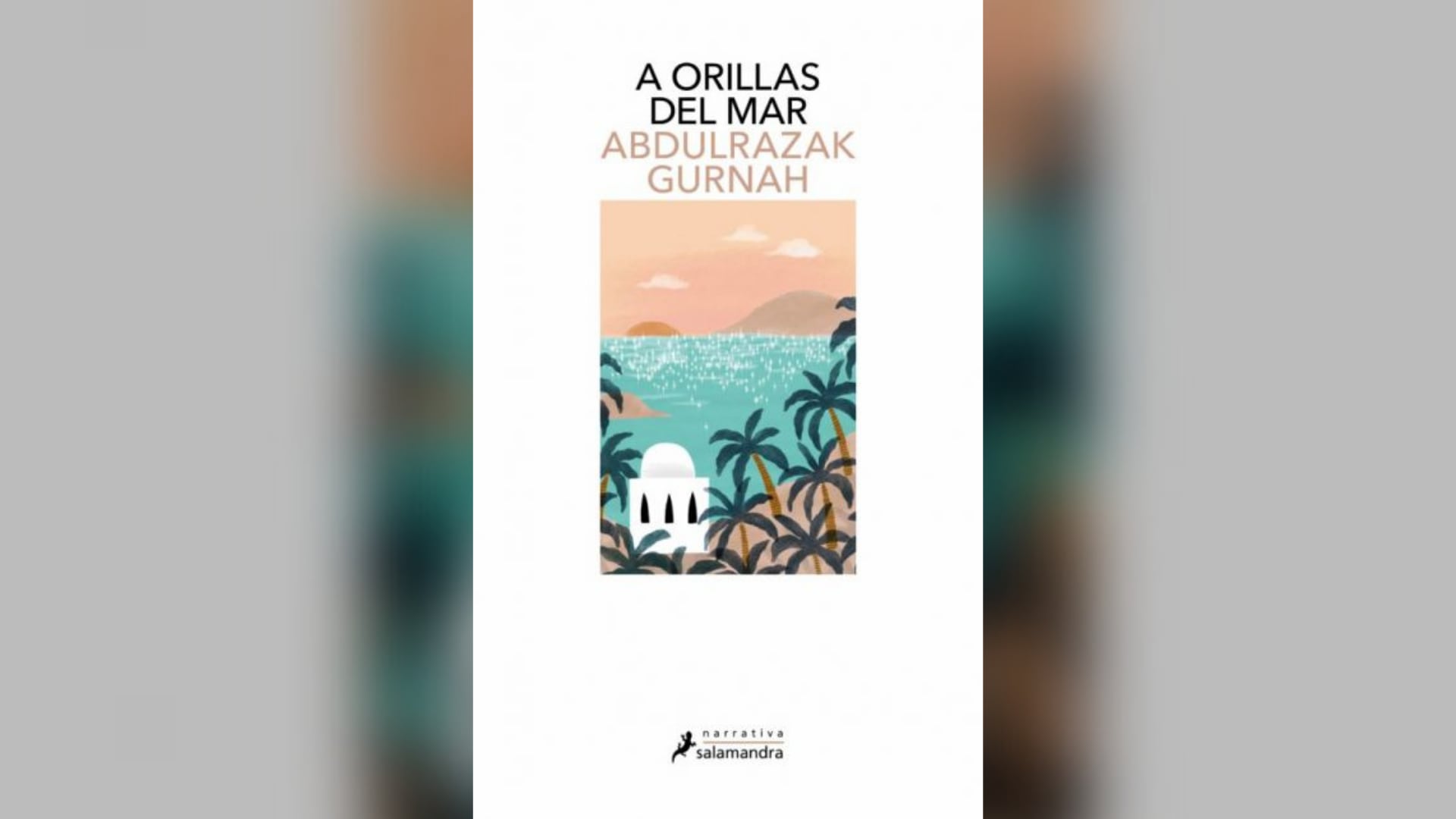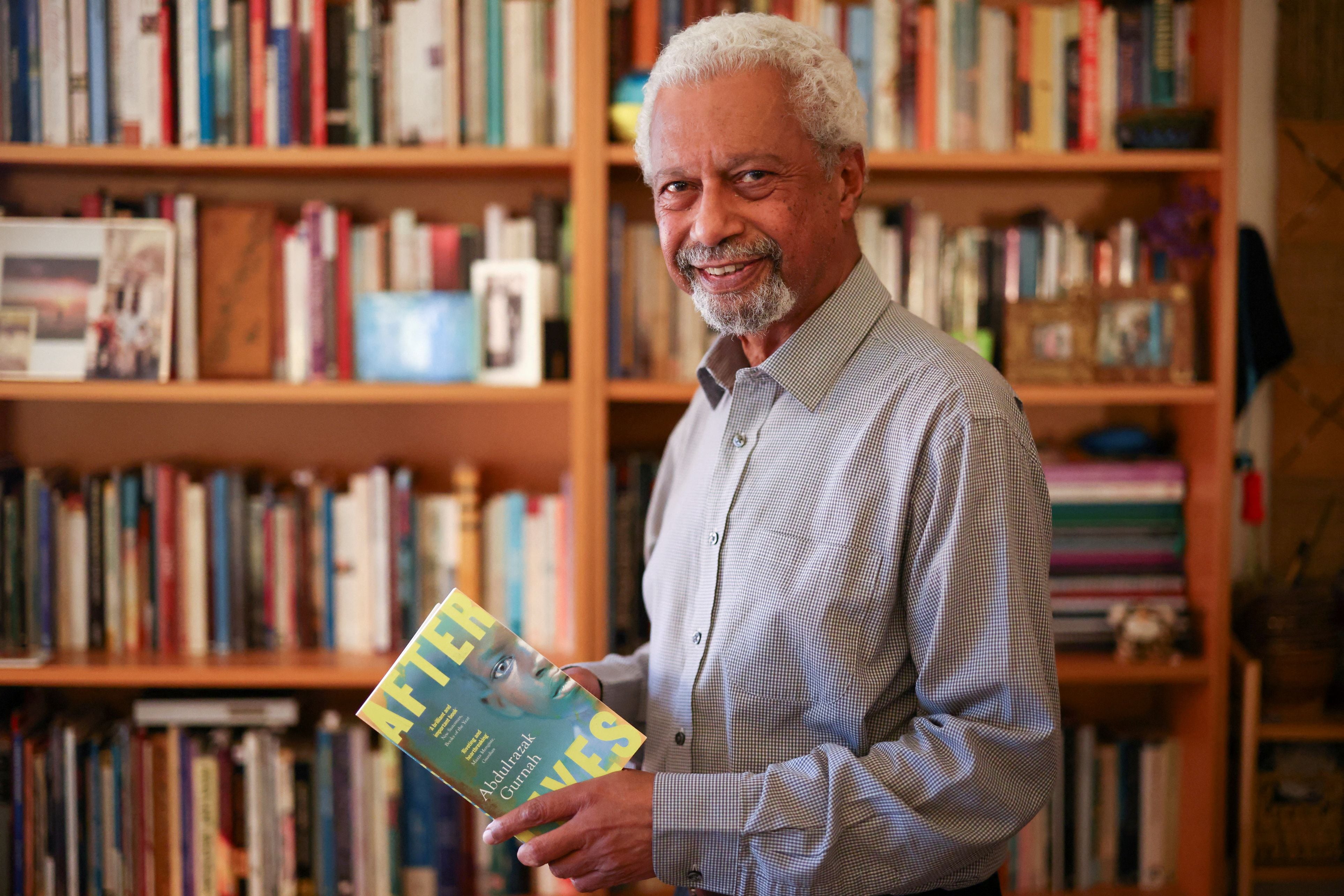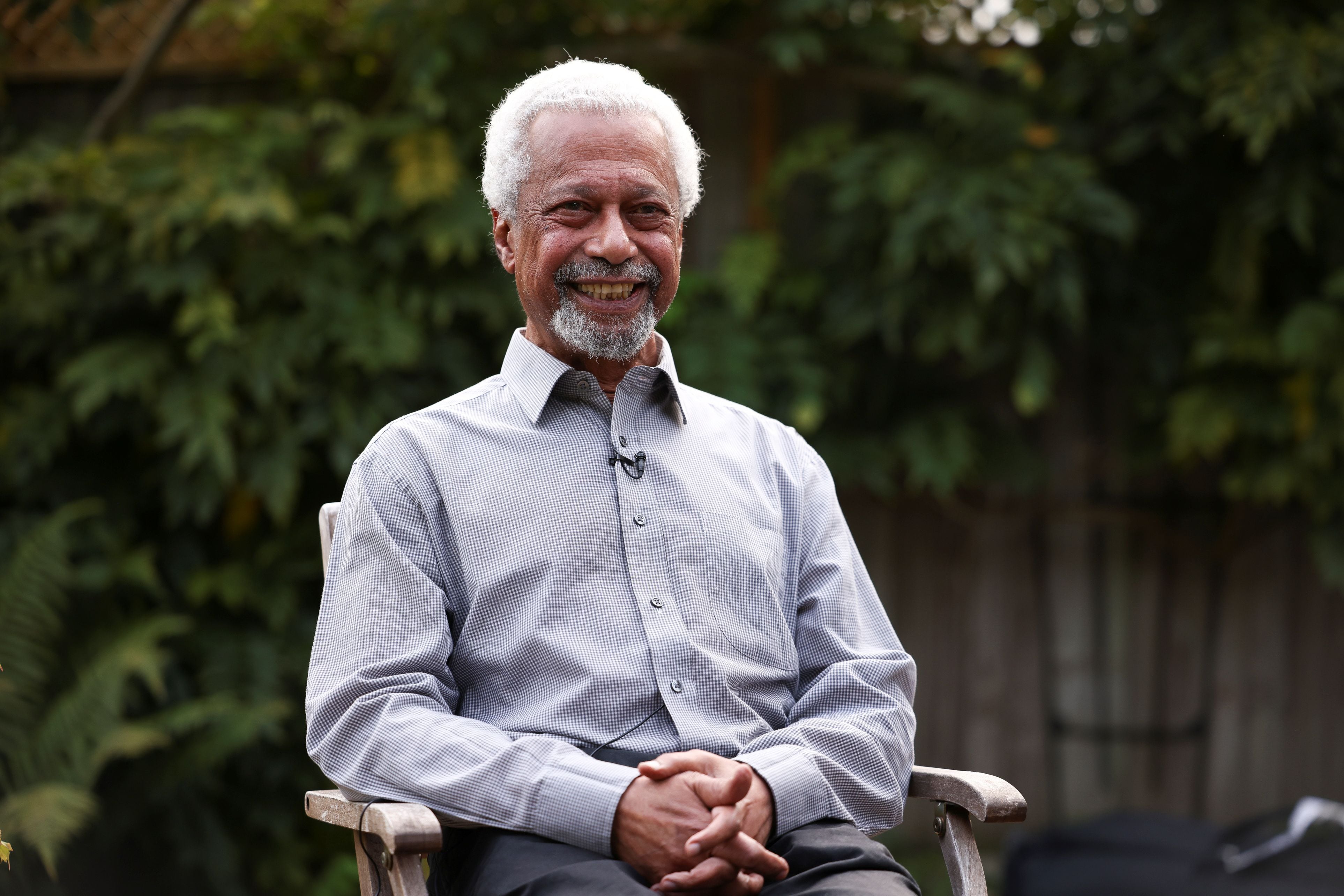
“Uprooting is a global phenomenon and we have been seeing it for many years,” Abdulrazak Gurnah, 2021 Nobel Prize Laureate in Literature, said at a Zoom conference with dozens of journalists from around the world. Organized by Penguin Random House from the spanish edition of The Sea (Salamander), a novel originally published in 2001 as By the Sea, the reunion lasted just over an hour. There he reviewed literary but also conjunctural issues.
Critically classified as a “post-colonial writer”, Gurnah was born in 1948 in Zanzibar, an archipelago in Tanzania off the coast of East Africa. He writes novels in English and lives in the UK. He is a professor and researcher specializing in colonialism in Africa, the Caribbean and India. He came to England at the age of 18, alone. “I arrived having lived a life, and it's really hard to forget that,” he said at the conference. From his refugee character he observes (and narrates) the world.
He stepped on English soil as a refugee with a Muslim minority who was being persecuted. Until then, literature was elusive. In Zanzibar there were very few bookstores, they had few books that were also expensive. The education he received there was “British colonial education”. Libraries were not very crowded either, and most of their books were old. He was 21 years old when he started writing more methodically. Since then it never stopped.
At the age of 32 he entered Bayero Kano University in Nigeria. He continued his studies at the University of Kent where he earned his doctorate. He is currently a professor and director of undergraduate studies in the English department. Besides being a narrator, he is a researcher. His main interest is in British postcolonial writing, mainly in texts circulating in the African, Hindu and Caribbean colonies.

The question about the Russia-Ukraine conflict was forced. About Ukrainian refugees he said that “they must be terrified. I feel compassion. It is undoubtedly a cruel and malevolent attack on the homes of many people. The only thing you can feel is that it's terrible to witness that,” adding: “Many responded with compassion, especially neighboring countries. Not all peoples are that well received. It is very sad how these people are forced to flee their homes.”
“I'm not sure if newspapers or the general public are more sympathetic to refugees,” he hesitated, and immediately opened the picture, when journalists asked him about the differential treatment of central countries with Ukrainian refugees and refugees from other areas outside Europe: “It is impossible not to to know that these things are happening,” said the writer.
“There is something else happening: in Europe there is a reluctance to strangers and it is nothing new. It has to do with the distance to people who come from the south of the world. That reluctance is racism. Germany has hosted Syrians, Spain and Portugal have welcomed many people. But in many countries, immigrants are spoken of as criminals, as people who steal prosperity, who ruin the comfortable lives of those who are there,” he said.
“It is not surprising that European countries show more sympathy for Ukrainians than Africans: it is their own family, they are their neighbors. Not surprisingly, it is sad that such human concern does not extend to Afghans or Iraqis. This has served to expose the biased attitude. It's the only positive thing we can get out of all this,” he continued.

He also spoke of postcolonial literature as a fundamental paradigm because “colonialism is taken for granted”. “In reality,” he said, “is to study the encounter between Europeans and people from other places, whatever those other places may be. It's a very useful concept but if someone finds another way we can put another label on it.” Those encounters, these cultural clashes is what interests him as a researcher, but also as a narrator.
Why do we read? “For the pleasure of entering a text, for the pleasure of words written in a beautiful way, for the perception that allows us to delve into an episode and understand another person, which helps us understand ourselves. Literature helps us to recognize ourselves, but we are also hooked by things we don't know. Something you didn't know, with literature you can see it in a deeper way,” he replied.
For Abdulrazak Gurnah, “human nature allows us beauty, also understood as generosity, but we are also capable of doing very ugly things. Sometimes, to my desperation, it seems that we are more capable of doing ugly things than beautiful things.” He added: “How many Indians have won the Nobel Prize? How many Chinese? Europeans have always won. Why? The answer is obvious: a small value is given to non-European productions. Perhaps, looking ahead, things will start to change. In a way it's already happening.”

Saleh Omar, a 65-year-old merchant, arrives at Gatwick Airport with a mahogany box full of incense and a fake passport. He flees the mythical island of Zanzibar, he's a refugee. This is how it begins by the sea. “As you read, you hardly dare to breathe for fear of breaking the spell,” The Times said, while for The Observer it is “a poetic manifesto against the tyranny of language when used as a tool of states.”
The important thing in literature, Gurnah says, is “finding the voice to tell the experience”; then it's about “trusting the good judgment we have.” “I'm optimistic about the future of books,” he said, explaining: “More books are sold than before and it's not because people can't read online, but because people want to have books in their hands. Even if they are read on paper or on screens, they are books. The Internet is an advantage for students who don't have money.”
“You can't throw a book into a tank to stop it,” he reflected, “but literature can clarify things so that we can fight later. I don't think an authoritarian person reads a book and says 'I've been wrong all my life, I'm going to change, I'll be nice', but many people have had revelations. Literature has informed us, not the tyrant, but the rest, so that the tyrants do not abuse us.”
About the Nobel Prize, his grand prize, he said: “It has changed my life, it has made me very happy to join a list of authors that I admire so much. With this they tell me that now I can join the club, it's fantastic, wonderful. Now many people from many different parts of the world want to read these books: it is the dream of any author. This is all very good, I'm glad, but at some point I'm going to have to sit back down and write”, and he smiles on the other side of the screen.
KEEP READING
Abdulrazak Gurnah: what are the books of the new Nobel Prize for Literature like
Últimas Noticias
Debanhi Escobar: they secured the motel where she was found lifeless in a cistern
Members of the Specialized Prosecutor's Office in Nuevo León secured the Nueva Castilla Motel as part of the investigations into the case

The oldest person in the world died at the age of 119
Kane Tanaka lived in Japan. She was born six months earlier than George Orwell, the same year that the Wright brothers first flew, and Marie Curie became the first woman to win a Nobel Prize

Macabre find in CDMX: they left a body bagged and tied in a taxi
The body was left in the back seats of the car. It was covered with black bags and tied with industrial tape
The eagles of America will face Manchester City in a duel of legends. Here are the details
The top Mexican football champion will play a match with Pep Guardiola's squad in the Lone Star Cup

Why is it good to bring dogs out to know the world when they are puppies
A so-called protection against the spread of diseases threatens the integral development of dogs




